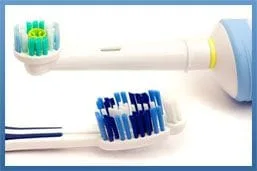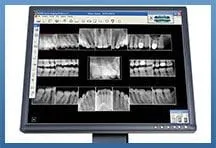We have the answers for you!
Click on each of the questions below to display the answer. If we have not answered your question, feel free to contact us!
Should I update my manual toothbrush to an electric?

I’ve heard that my silver-colored fillings contain mercury. Should I have them replaced?
Dental amalgam (silver) fillings contain silver, tin, copper, and liquid mercury, which are combined to form an inert (non-active) alloy. According to the FDA, CDC, the American Dental Association (ADA), and a number of other public health agencies, there is no link between this type of filling and any known health issue. Because of speculation and controversy, amalgam is the most researched and tested dental filling material on the market.
Are dental X-rays safe?

When should my child receive his/her first dental check-up?
Ideally, you should seek a dentist for your child when the first tooth appears and no later than their first birthday.
My morning doesn’t start until I’ve had my first cup of tea. How bad is this for my teeth?

I’m pregnant. Is it safe for me to go to the dentist?
Congratulations! Yes, you should continue to see your dentist, as pregnancy can increase certain dental issues. Be sure to inform your dentist that you are pregnant and if you’re experiencing any changes in your oral health.
Why don’t my dentures fit right anymore?

How can I protect my teeth from damage?
The enamel on our teeth is hard, but as we all know, it can be chipped and cracked. In addition to following the instructions of your hygienist, here are some other ways you can
protect your teeth:
- Avoid chewing ice, cracking nut shells, or opening packages with your teeth.
- Avoid “hard foods” such as popcorn.
- Limit acidic soft drinks and sugary foods that stick to your teeth.
- Decide against tongue and lip piercings, which can fracture teeth and increase infection risk.

